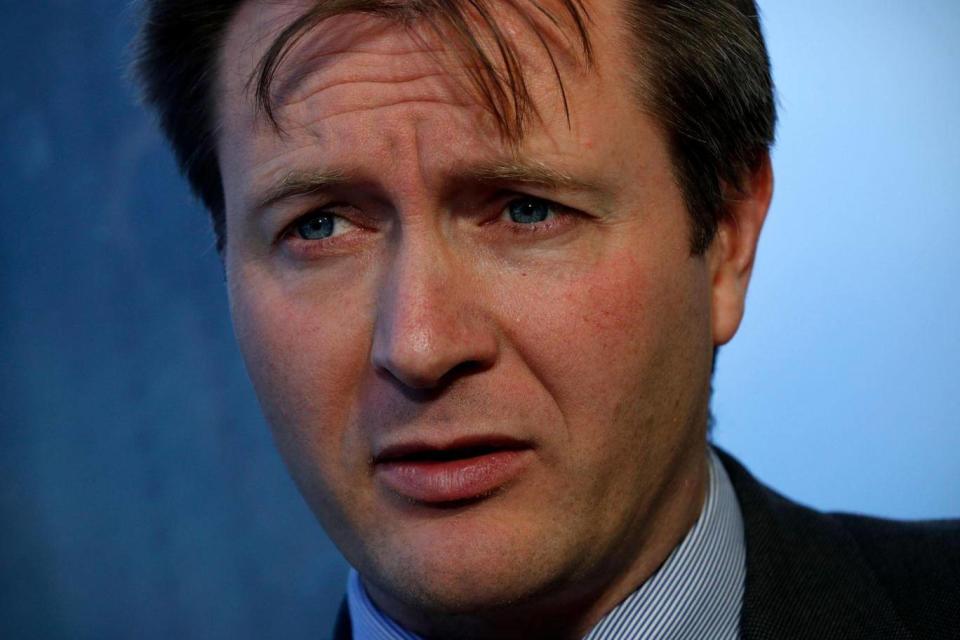Nazanin Zaghari-Ratcliffe remains in jail 'because Iran and UK want to haggle over arms deal interest rates', husband claims

Jailed British mother Nazanin Zaghari-Ratcliffe has been told her release from a Tehran prison is being delayed because the UK and Iranian governments are haggling over the precise interest rate to be paid by Britain to settle a £450m arms deal debt, her supporters say.
The 39-year-old charity worker, arrested in April 2016 while trying to return home from a holiday with her 21-month-old daughter, was allegedly told by a judge: “The British have accepted to pay the historic debt, but there is still a dispute over calculating the interest rate.”
The suggestion that a squabble over interest rates is now blocking his wife’s freedom has infuriated Ms Zaghari-Ratcliffe’s husband Richard, who recalled how Foreign Secretary Boris Johnson promised to “leave no stone unturned” to secure her release.
“A fight over a half or one per cent of interest rate,” said Mr Ratcliffe, “does not seem such a big stone that it is worth keeping a mother in prison and away from her baby.
“It doesn’t seem like a boulder for a Foreign Secretary, but more of a pebble for a government committed to ensuring that no stone remains unturned.”
Telling The Independent he did not know the precise difference in interest rates being haggled over but suspected it was small, Mr Ratcliffe added: “The first duty of both governments is to protect their citizens. That comes before money.
“And Nazanin is not going to be able to hold out much longer. She is growing increasingly desperate.”

The debt in question is widely believed to relate to a 1970s agreement to supply British-built Chieftain tanks that went sour after the Shah of Iran was deposed in the revolution of 1979.
Britain agreed to pay more than £450m to Iran as long ago as 2002, when the UK Treasury and Government-owned arms company International Military Services paid money into the London High Court.
It appears, however, that there has been protracted wrangling about the precise amount ever since, with at least three appeals and counter-appeals going through international courts in The Hague. It is also thought that agreement was further complicated by fears that if Britain simply handed over money direct to Iran’s defence ministry it would be in breach of international sanctions against the Tehran government.
Now, though, it is being alleged that the two governments are down to discussing interest rates while Ms Zaghari-Ratcliffe remains in jail, where she has been for 690 days.
Mr Ratcliffe, who has previously accused the Iranians of treating his wife as a “bargaining chip” in the dispute, said that on Wednesday she was taken to see a judge in Evin Prison.
The judge was initially reluctant to discuss the negotiations, but when pressed, he is said to have told Ms Zaghari-Ratcliffe: “The British have accepted to pay the historic debt, but there is still a dispute over calculating the interest rate.
“It is the Ministry of Foreign Affairs that is finalising with the UK the calculation of the interest owed on the debt.”
When the jailed mother asked bitterly, “Who would take a mum and a baby hostage to get money?” the judge is alleged to have replied: “That money is Iran’s right.”
Mr Ratcliffe explained that Ms Zaghari-Ratcliffe was able to tell other family members about the conversation when they visited her in jail.
He said he did not know how much extra money the Iranians’ higher interest rate demand would equate to, but he suspected that in the context of an already agreed payment of more than £450m it would be relatively small.
Mr Ratcliffe said: “We are effectively talking about £450m plus a few million more. In the context of what is already a big bill and Nazanin’s freedom, at a time when she is losing her ability to endure, this can only be a small sum.”
He said he found it amazing that such “hard-nosed” haggling over money could continue when an innocent captive was going increasingly desperate.
“Even now,” said Mr Ratcliffe, “our story has the capacity to amaze me. It gets crazier and crazier. You could say this latest development is a sobering lesson in the reality of what is called ‘grown-up politics’.”
Mr Johnson’s promise to leave no stone unturned came after the Foreign Secretary mistakenly told MPs that Ms Zaghari-Ratcliffe had been teaching journalists, when in fact the dual national had gone to Iran on holiday with her daughter Gabriella and had passed her time seeing relatives.
The Iranian government seized on Mr Johnson’s gaffe, with state TV portraying it as an accidental confession that Ms Zaghari-Ratcliffe was a spy.
In a submission to the UN special rapporteur on torture earlier this month, Mr Ratcliffe formally accused the Iranians of using his wife as a bargaining chip.
The Iranian government, however, has always denied such abuse, saying that Ms Zaghari-Ratcliffe was “detained due to illegal acts” and was at all times treated fairly and “according to due judicial process”.
The British government has always insisted that the disputes over the arms deal and Ms Zaghari-Ratcliffe are entirely separate issues.
A Foreign Office spokesman said: “We and the Iranians reject any idea the two issues are linked. Funding to settle the debt was paid to the High Court by the Treasury and the International Military Services in 2002. Iran’s Ministry of Defence remains subject to EU sanctions.”

 Yahoo News
Yahoo News 